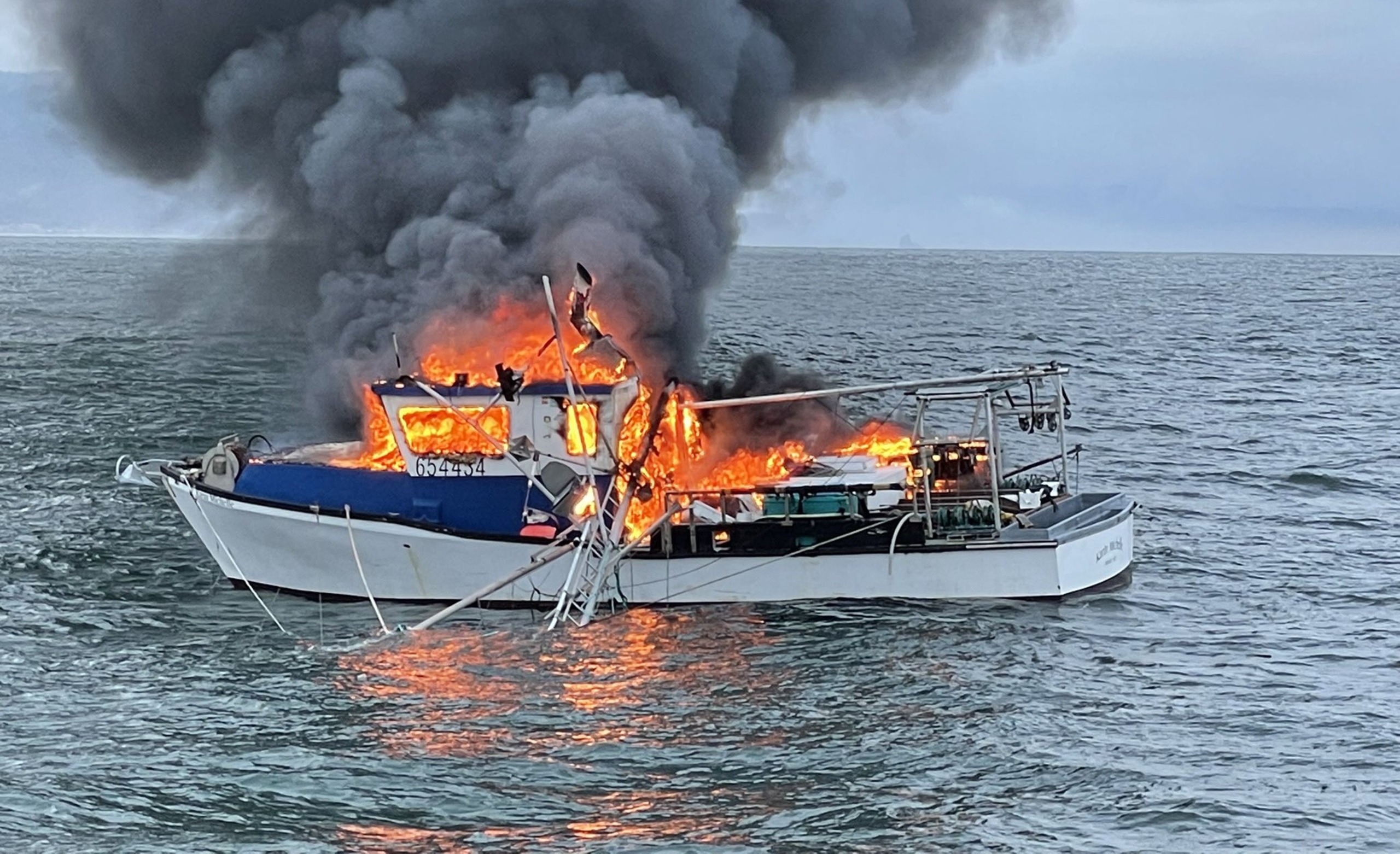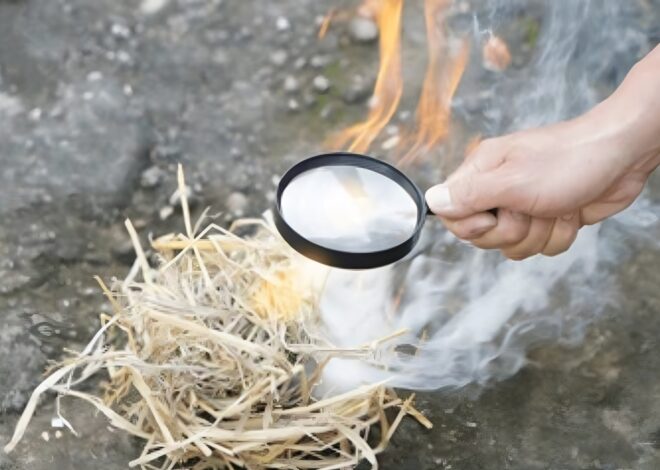
Surviving A Fire At Sea
Join us as we delve into essential tips and guidelines for staying safe and surviving a fire at sea! Picture this: the vast expanse of the ocean stretching out endlessly around you, the salty breeze in your hair, and the sun setting on the horizon.
But amidst this serene beauty lies a hidden danger – fires at sea. Surviving a fire onboard a boat or ship is not just about luck; it’s about being prepared, knowing what to do, and acting swiftly when every second counts.
Understanding Fire Safety Regulations on Ships
When it comes to staying safe at sea, preparation is key. Understanding fire safety regulations on ships is crucial for ensuring the well-being of everyone onboard. These regulations are in place to prevent fires from occurring and to provide a framework for responding effectively if one does break out.
Ships are complex environments with unique challenges when it comes to fire safety. It’s essential to be aware of the specific rules and procedures that apply to your vessel. Familiarize yourself with emergency drills, evacuation routes, and the location of firefighting equipment.
Fire prevention starts with identifying potential hazards on board. Keep an eye out for anything that could spark a fire, such as faulty wiring, flammable materials, or improperly stored chemicals. Regular inspections and maintenance can help mitigate these risks.
By equipping yourself with the necessary tools and knowledge beforehand, you’ll be better prepared to handle any fire-related emergencies that may arise during your time at sea. Stay informed, stay vigilant, and prioritize safety above all else when it comes to fire prevention on ships.
Identifying Potential Fire Hazards on a Boat or Ship
When it comes to being out on the water, safety should always be a top priority. One crucial aspect of staying safe at sea is being able to identify potential fire hazards on your boat or ship.
Start by familiarizing yourself with the layout of your vessel and locating any areas where fires could easily start. Keep an eye out for electrical equipment that may be prone to overheating, as well as flammable materials like fuel and oil.
Regularly inspect and maintain all onboard systems, such as engines, generators, and heating units, to ensure they are in proper working condition. Make sure all fire extinguishers are up-to-date and located in easily accessible areas.
Educate yourself and your crew about fire prevention techniques and emergency protocols in case a fire does break out. By staying vigilant and proactive in identifying potential fire hazards, you can help mitigate risks while enjoying your time on the open water.
Equipping Yourself with the Necessary Tools and Knowledge
Equipping yourself with the necessary tools and knowledge is crucial when it comes to surviving a fire at sea. First and foremost, familiarize yourself with the location of firefighting equipment on board. This includes fire extinguishers, hoses, and emergency escape routes. Understanding how to operate these tools effectively can make all the difference in an emergency situation.
Additionally, ensure you have proper training in fire safety protocols specific to maritime environments. Take part in onboard drills and exercises so that you are prepared to act swiftly and decisively if a fire breaks out. Knowledge is power when it comes to dealing with potential hazards at sea.
Carrying a personal safety kit that includes essentials such as a flashlight, protective gear like gloves and goggles, and a whistle for signaling for help is also recommended. Being proactive in your preparations can significantly increase your chances of survival should disaster strike on the water.
Remember, being equipped with both physical tools and mental readiness is key to staying safe during any unexpected events while sailing the seas. Stay informed, stay alert, and stay prepared for anything that may come your way aboard a boat or ship.
Acting Quickly: Steps to Take in Case of a Fire Onboard
When faced with a fire onboard a boat or ship, acting swiftly is crucial. The first step is to remain calm and alert your crew members immediately. Time is of the essence in these situations.
Next, locate the nearest fire extinguisher and use it to try and contain the fire if it’s safe to do so. Remember to aim at the base of the flames for maximum effectiveness.
If the situation escalates, don’t hesitate to activate the ship’s alarm system and notify authorities via distress signals or radio communication. Ensure all passengers are accounted for and gather at designated muster stations.
Follow evacuation procedures as trained, wearing life jackets if necessary. Stay low if smoke is present and avoid inhaling toxic fumes by covering your mouth with a damp cloth.
By taking quick action and following emergency protocols, you can increase your chances of surviving a fire at sea.
Best Practices for Preventing Fires at Sea
Fires at sea can be catastrophic, so it’s crucial to prioritize prevention. One of the best practices for preventing fires onboard is regular maintenance. Ensure all electrical systems are up to date and functioning properly. Inspect fuel lines, engines, and cooking equipment routinely to catch any potential hazards early.
Proper storage and handling of flammable materials are essential. Keep fuels, oils, and other combustibles stored in designated areas away from heat sources. Implementing a strict smoking policy can also significantly reduce fire risks on board.
Investing in quality firefighting equipment is non-negotiable. Have fire extinguishers readily available in easily accessible locations throughout the ship or boat. Conduct regular drills with the crew to familiarize everyone with emergency procedures and evacuation routes.
Educating yourself on fire safety protocols is key to preventing disasters at sea. Stay informed about current regulations and guidelines for fire prevention on watercraft of all sizes. By following these best practices consistently, you’ll significantly decrease the likelihood of a fire breaking out while at sea.
Staying Safe and Prepared for Any Emergency on the Water
Staying safe and prepared for any emergency on the water is crucial for anyone venturing out to sea. By understanding fire safety regulations, identifying potential hazards, equipping yourself with the necessary tools and knowledge, acting quickly in case of a fire onboard, and practicing preventive measures, you can significantly increase your chances of surviving a fire at sea.
Remember that prevention is key. Regularly inspecting electrical systems, keeping flammable materials secured, and conducting regular safety drills can go a long way in averting disasters. Stay vigilant, be proactive in maintaining a safe environment on board, and always have a plan in place should an emergency arise.
By following these guidelines and staying informed about best practices for fire safety at sea, you can enjoy your maritime adventures with peace of mind knowing that you are well-prepared to handle any challenges that may come your way. Stay safe out there!



